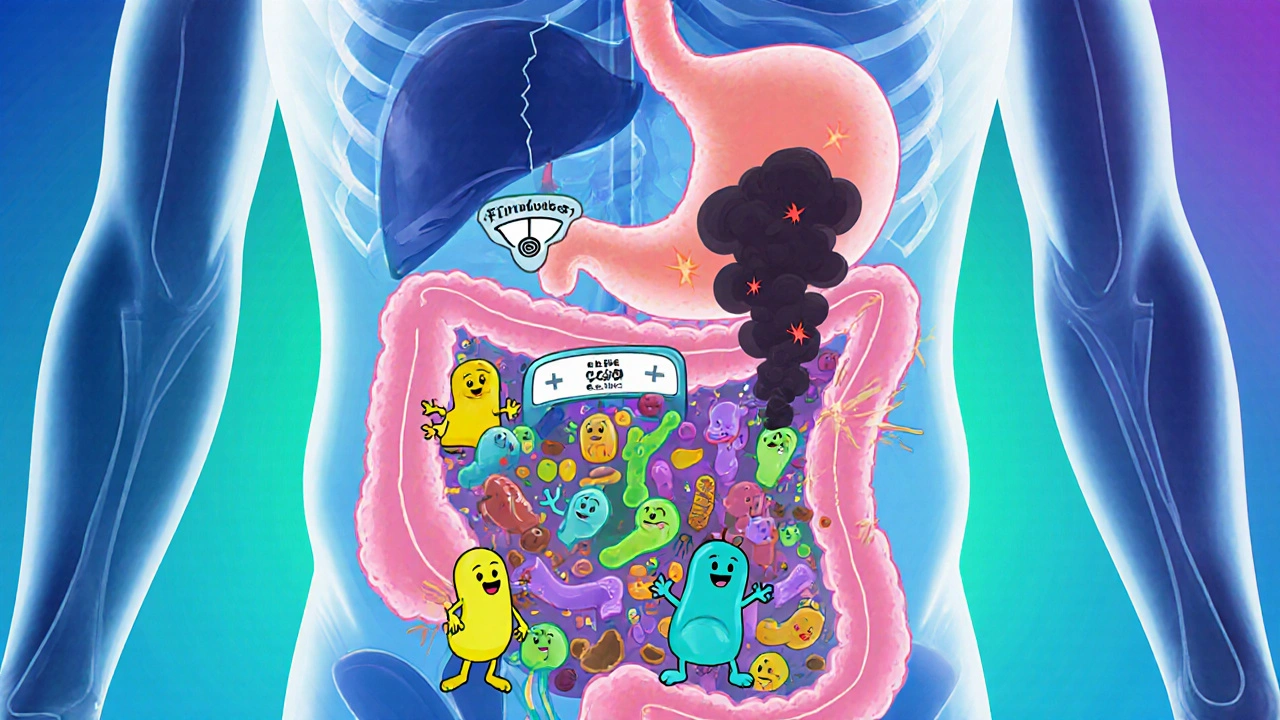Probiotics: What They Are, How They Work, and Why They Matter for Men's Health
When you hear probiotics, live microorganisms that provide health benefits when consumed in adequate amounts. Also known as good bacteria, they're not just for digestive issues—they play a key role in how your body handles inflammation, absorbs nutrients, and even regulates mood. Most men don’t think about their gut until something goes wrong—bloating, gas, or maybe a bad case of food poisoning. But the truth is, your gut is home to trillions of bacteria, and the balance between good and bad ones affects everything from your energy levels to your testosterone production.
The microbiome, the collection of all microbes living in and on your body is like an internal organ. It helps break down fiber, makes certain vitamins, and trains your immune system to recognize threats. When antibiotics wipe out good bacteria, or your diet is full of processed food, that balance breaks down. That’s where gut health, the state of balance and function in your digestive tract comes in. Poor gut health is linked to fatigue, low mood, and even erectile dysfunction—not because probiotics directly treat ED, but because inflammation and poor nutrient absorption mess with hormone pathways.
Men who take antibiotics often, eat a lot of sugar, or deal with chronic stress are more likely to have an imbalanced microbiome. Probiotics aren’t magic pills, but they can help reset the system. Not all strains are the same—Lactobacillus and Bifidobacterium are the most studied, and some specific strains like L. rhamnosus GG and B. longum have shown benefits for immune response and stress reduction. You can get them from yogurt, kefir, sauerkraut, or supplements. But here’s the catch: they need to survive your stomach acid and reach your intestines alive. That’s why some supplements use enteric coatings or are paired with prebiotics—food for the good bugs.
And it’s not just about digestion. Research shows a direct line between gut bacteria and brain function—the gut-brain axis. Men with depression or anxiety often have different gut microbiomes than those without. While probiotics won’t replace therapy or medication, they’re part of the bigger picture for mental and physical resilience. Your immune system also leans on your gut: up to 70% of immune cells live in the intestines. When your microbiome is healthy, you’re less likely to catch colds, recover faster from infections, and respond better to vaccines.
What you’ll find in the posts below isn’t a sales pitch. It’s real, practical info—how probiotics interact with antibiotics, why some supplements don’t work, what to look for on labels, and how they tie into broader health issues like diabetes, inflammation, and even skin conditions. No fluff. Just what you need to know to make smart choices about your gut—and your overall health.
Discover how gut microbiota influences obesity and how specific probiotics can support metabolic health. Learn which strains work, why results vary, and how to use them effectively for lasting weight management.

